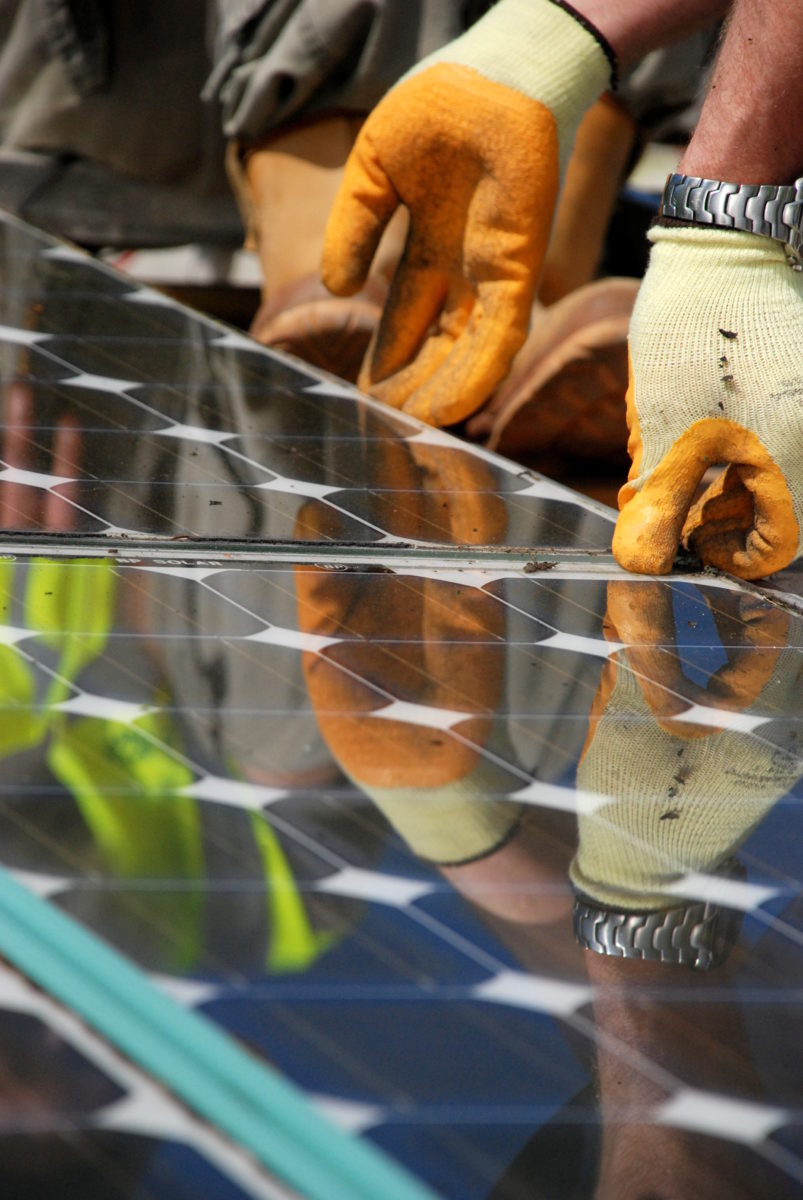The launch of a remote renewables surveying service has the potential to open up the U.K. installation market to more competition, according to the company involved.
Alistair Marsden, commercial director of Wales-based renewable consultancy Dulas, says his company’s Remote Renewable Energy Survey Service can help organisations such as universities, large businesses and local councils break free of the need for government subsidies, although shrugging off that dependency will also involve a change in attitude, says the director.
“I prefer not to use the word ‘subsidy’, but rather ‘support for renewables’ because assistance goes further than just subsidies,” Mr. Marsden told pv magazine.
“The crux to all of this is that people still view renewables as a way of making money – which for the funders – the investors – it is; they need a return on their investment.
“But for the consumer of the power, a business or a university, if you look at it as a way of reducing cost, the end result is the same on the balance sheet. Renewables at the minute don’t make you money, but they can control or save your costs.”
Solar potential
The Dulas service is similar in idea to Google’s Project Sunroof tool, which enables homeowners to learn the solar potential of their rooftop without the need to book a site visit and assessment. The remote service provided by Dulas – a consultancy based in Machynlleth, Powys – takes the principle a stage further by assessing the renewable possibilities across extensive estates, and extending to more than just rooftops.
For instance Keele University, in England, is tendering to explore how renewable energy generation could be installed across its 600-acre estate.
“There is more interest from universities at the moment,” Mr. Marsden says, “the problem with local authorities is the number of layers [of management] and the speed at which they move. They are having money taken off them left, right and centre [by the U.K. government] so their time and energy, quite rightly, is focused on that. They are moving more slowly than we’d like but there’s a virtual pot of money for them at the end of [renewables adoption].”
Popular content
Big Six alternative
Mr. Marsden cited the example of the Robin Hood Energy company established by Nottingham City Council, also in England – a non-profit energy provider which is generating energy from renewables and incorporating storage to supply power to residents – some of whom suffer fuel poverty – at lower prices than the U.K.’s ‘Big Six’ energy companies.
The director says the Dulas service, which overlays publicly available LiDAR and GIS mapping data with irradiation figures and renewable system knowhow in a desk-based exercise, is “generally cheaper” than the costs charged for the site visits necessary to survey extensive estates in the traditional manner – as well as being much quicker, as they are “often turned around within a week”.
The remote service also avoids the need to grant access and cause related disruption at some sites, adds Mr. Marsden, explaining: “If you go to a hospital or an airport, the security clearance needed to crawl around might not show up on a tender but it does cause disruption.”
“The whole sector is realizing that reliance on government support is a dangerous business model. Big business is seeing the benefit of solar power across the world, in the way it can use solar to hedge energy costs as well as reducing its carbon impact, and that is also true in the U.K.”
The commitment of the corporate world to solar was underlined by the announcement yesterday that Korean giant Samsung Electronics will commit to sourcing all of its power needs in the U.S., Europe and China from renewables by 2020, as part of a commitment to installing the equivalent of a 3.1 GW PV plant across its worldwide operations within two years.
As a signatory to the World Wide Fund for Nature's Renewable Energy Buyers' Principles scheme, Samsung also announced an extensive solar panel installation program for its Digital City headquarters in Suwon, South Korea.
<i>This article has been amended to include news of Samsung's renewable energy commitment.</i>
This content is protected by copyright and may not be reused. If you want to cooperate with us and would like to reuse some of our content, please contact: editors@pv-magazine.com.



By submitting this form you agree to pv magazine using your data for the purposes of publishing your comment.
Your personal data will only be disclosed or otherwise transmitted to third parties for the purposes of spam filtering or if this is necessary for technical maintenance of the website. Any other transfer to third parties will not take place unless this is justified on the basis of applicable data protection regulations or if pv magazine is legally obliged to do so.
You may revoke this consent at any time with effect for the future, in which case your personal data will be deleted immediately. Otherwise, your data will be deleted if pv magazine has processed your request or the purpose of data storage is fulfilled.
Further information on data privacy can be found in our Data Protection Policy.